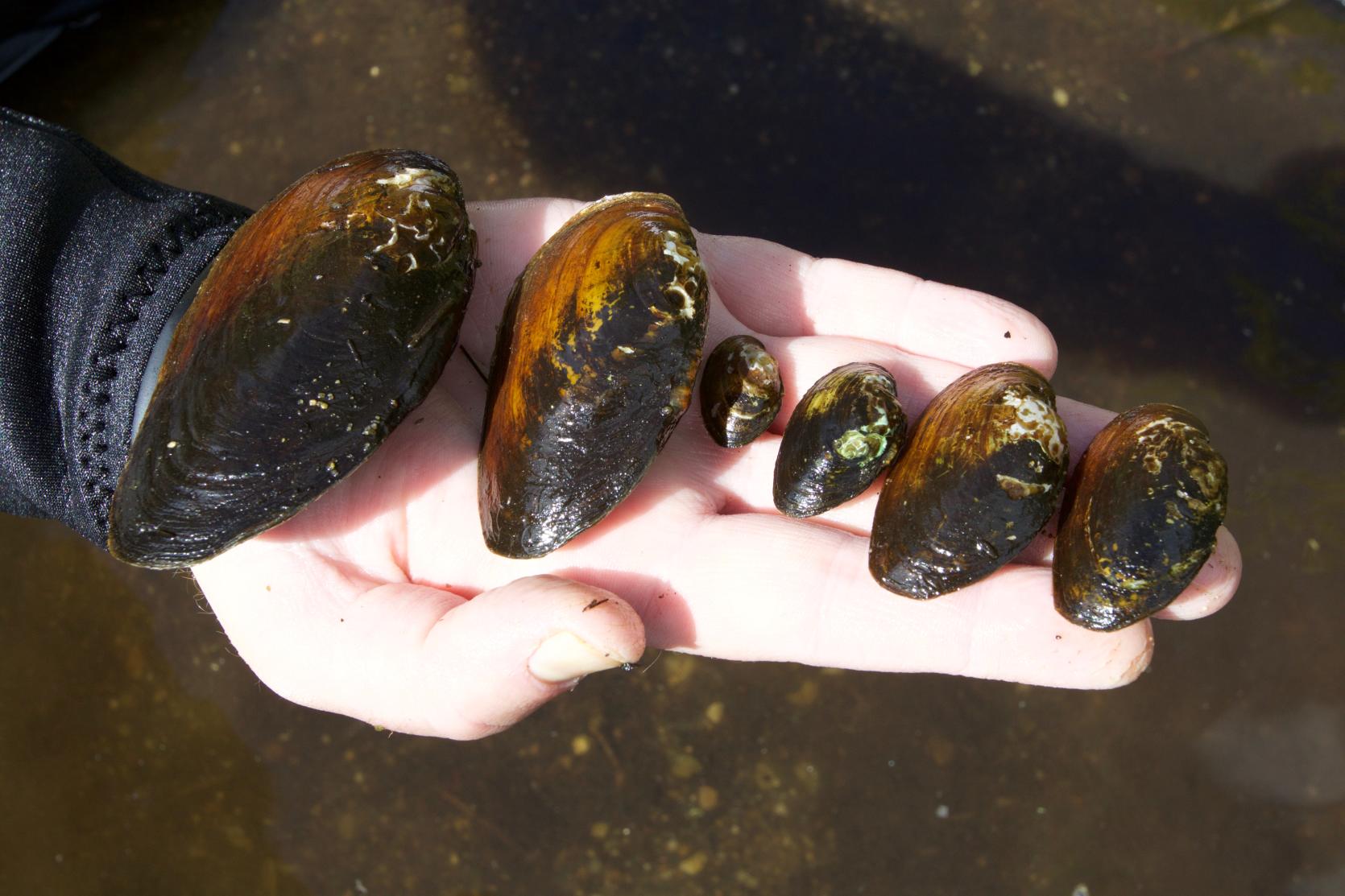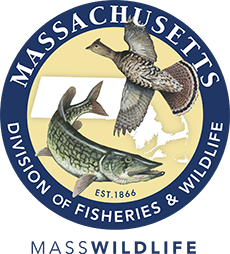- MassWildlife's Natural Heritage & Endangered Species Program
- Division of Fisheries and Wildlife
Media Contact
MassWildlife Information and Education

Freshwater mussels don’t look like much. To most people, they just sit there doing nothing but hurt your feet when you walk barefoot in a river or stream. Some people even mistake them for rocks, not realizing how these "rocks" also help keep our rivers and streams clean. Like their saltwater cousins, freshwater mussels eat plankton and other small things by filtering water that passes over them. This not only takes nutritious bits out of the water, but also removes potentially harmful debris like silt and algae, making the water cleaner for everyone. One mussel can filter up to 15 gallons of water in a single day. For an animal that most of us mistake for a rock, that's a lot of cleaning.
Most freshwater mussels in Massachusetts rivers are in danger of disappearing. Despite their filtering prowess, they remain sensitive to certain chemicals and other human pollutants. Freshwater mussels also depend on fish to survive. At the beginning of their rather long lives (some live 70–100 years!), freshwater mussels begin life parasitizing fish. In their version of hitchhiking cross country, larval mussels called glochidia attached to gills or fins of fish for about 3 weeks. The fish act as a source of nutrients, and transportation, until they fall to the waterway bed and begin their lives of filtering. Habitat fragmentation blocks passage for many host fish in rivers and streams, hurting their chances of survival. As numbers of fish decline, larval mussels miss a crucial step in their development and cannot survive to reach adulthood.
Of the 12 freshwater mussel species in Massachusetts, six are protected under the Massachusetts Endangered Species Act. MassWildlife’s Natural Heritage and Endangered Species Program works with partners such as UMass Amherst to study the life history of protected mussels to better aid in their conservation. With knowledge gained from studies, we are better able to protect land and improve habitat at high-priority sites.
You too can help freshwater mussels. When you make a voluntary contribution on Line 33A for Endangered Wildlife Conservation on your state income tax form, you take part in freshwater mussel conservation. This money goes directly to a fund that can only be used for conservation. Funds donated through this income tax check-off line are used for conservation work with freshwater mussels and over 400 other rare species protected by the Massachusetts Endangered Species Act.
Already filed your taxes? No problem! You can still help endangered animals and plants.
Rare mussels in Massachusetts
Six of the 12 species of freshwater mussels in Massachusetts are protected under the Massachusetts Endangered Species Act. Click on the common names below to learn more about each species.
| Common name | Scientific name | MA status | Federal status |
| Dwarf wedgemussel | Alasmidonta heterodon | Endangered | Endangered |
| Brook floater | Alasmidonta varicosa | Endangered | |
| Yellow lampmussel | Lampsilis cariosa | Endangered | |
| Tidewater mucket | Leptodea ochracea | Special concern | |
| Eastern pondmussel | Ligumia nasuta | Special concern | |
| Creeper | Strophitus undulatus | Special concern |

